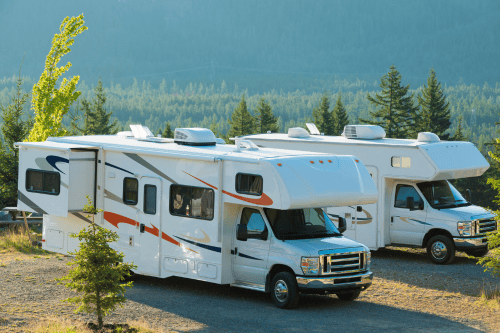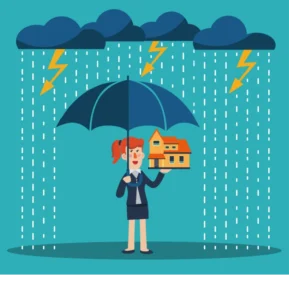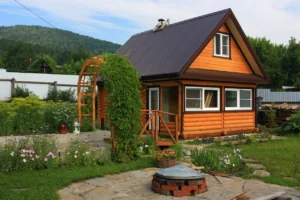
Motorhomes as Short-Term Rentals: A Unique Opportunity for Landlords and Property Managers
Motorhomes have been the embodiment of freedom and adventure for a long time, whereby one can travel around without any limitations typical with regular vacations. For landlords and property managers, these versatile vehicles can be an enticing option to diversify short-term rental offerings. You can offer an immersive experience, pairing comfort and mobility instead of just providing a static place to stay. Whether families want to create a memorable road trip or couples want to have off-grid escapes, motorhomes are another twist on the traditional vacation rental model.
Why Add Motorhomes to Your Rental Portfolio
In a highly competitive hospitality market, differentiation will be the name of the game. Adding a motorhome to the rentals will attract travelers with a need for flexibility and something different. Be it to national parks, beautiful coastlines, or less popular places, your guests can travel at their pace and wake up every morning with new views. This comes complete with all the amenities someone might need: a plush bed, kitchenette, and sometimes a bathroom, enabling guests to stick with their routine in a new atmosphere.
Motorhomes appeal to groups or families who love shared space and the ease of having everything in one vehicle, sometimes commanding higher rates per night due to the novelty of experiences and comforts offered by such vehicles. Furthermore, there are those travelers who actively seek a road-trip experience, making it rather easier to present a motorhome as the perfect answer for that feel of freedom and self-guided travel.
Ensuring Safe and Reliable Vehicles
Just like any property you list, motorhomes require upkeep and verification to deliver a reliable, worry-free experience. Online services like https://epicvin.com/ enable you to examine a motorhome’s complete history, from accidents to changes in ownership and possible title issues. Because your reputation as a landlord or property manager hinges on the quality of your rental units, ensuring that each motorhome is structurally sound and free of major mechanical defects is crucial.
EpicVIN simplifies the used-car buying process by providing comprehensive vehicle history reports through quick and reliable VIN checks. This transparency uncovers critical details such as past accidents, odometer readings, and title statuses, empowering buyers to negotiate confidently and avoid costly pitfalls. With user-friendly tools and up-to-date data, Vingurus helps foster a safer, more informed automotive marketplace for all parties involved.
Pros and Cons of Motorhome Rentals
While adding motorhomes to your portfolio can be lucrative and appealing, it’s essential to weigh the advantages against potential drawbacks:
Pros
- Higher Revenue Potential: Unique experiences can often command premium nightly rates, especially during peak travel seasons.
- More Appealing to the Wider Market: A motorhome can attract all kinds of customers, from families to retirees to adventurers, thus widening your customer base.
- Differentiation: Providing a mobile lodging experience differentiates your rental business in the competitive market, building brand reputation.
- Flexible Rental Terms: Depending on your business model, you can tailor rental options from short weekend getaways to multi-week excursions to various audiences.
Cons
- Maintenance Requirements: The motorhome will require periodic mechanical checks, cleaning, and servicing, perhaps more so than a static property would.
- Storage and Parking Restrictions: Large vehicles require parking when not in use and some neighborhoods put limits on where motorhomes can park.
- Potential Liability: Beginners could have less experience with larger automobiles, which also makes their driving more error-prone, hence more likely to raise costs in insurance policies.
- Higher Upfront Investment: Buying a good motorhome—especially one with desirable amenities—tends to be quite costly upfront.
Selecting the Right Motorhome
Choosing the appropriate motorhome for your rental business all depends on your target customer. If your target clientele is a couple or a small group, then the smaller Class B or van-style motorhomes would be suitable since they are easier to handle and often more fuel-efficient. Class A or Class C motorhomes are often preferred if you are anticipating larger families or extended trips because they have much more room and amenities.
First and foremost, the interior should satisfy the guests’ needs. Features such as a good number of sleeping spaces, a working kitchen, and air conditioning can easily turn a standard rental into a very appealing mobile vacation. Solar panels or more robust batteries are also very considerate features for those who would want to go off-grid camping without giving up modern comforts.
Maintaining Your Motorhome Fleet
Once you buy motorhomes, maintenance is an issue. Besides regularly scheduled services, such as changing oil and tire checks, your appliances, plumbing, and electricity may need attention specific to an RV configuration. Regular inspections greatly reduce the possibilities of mechanical breakdowns or unwanted guest complaints. To address this, find local service centers and technicians who deal with recreational vehicles for routine maintenance or repairs.
And then there is insurance. Commercial policies for RV rentals often include better coverage than you might have in a standard auto policy. They often address accidents, damages, and liability beyond what is included in your basic auto insurance. Knowing what is covered, and making sure to advise renters of any driving restrictions, serves to minimize risks both legally and financially.
Driving Support for Renters
Unlike a stationary residence, motorhomes require the renter to handle a large vehicle on public roads. You can assuage some of the first-time driver jitters with brief orientation sessions or even just lengthy instructions. Provide tips on maneuvering, parking, and how to operate such features as generators or leveling systems. A short instruction session will rid most of the errors that lead to damage, therefore protecting your property and your client’s peace of mind.
Likewise, advanced safety kits—rearview cameras, parking sensors, and collision-avoidance systems—would assist beginners manage these large vehicles. When installed and well maintained, they can rescue you from certain mishaps and reduce your insurance cost.
Conclusion
Adding motorhomes to your short-term rental inventory can be a very profitable business. For the adventurous traveler, motorhomes represent a unique way to tour combined with all the comfort of home, and all the romance of living literally on the open road. With comprehensive research into each vehicle’s history, well-serviced fleets, and clear guidance for inexperienced drivers, landlords and property managers are well-positioned to capitalize on this rising demand for unique, experience-driven accommodations. Of course, there are additional responsibilities, especially in regards to maintenance and liability, but the prospect of stellar returns and happy guests makes motorhomes a very attractive option for investors looking to diversify their rental portfolio.













 Accessibility
Accessibility